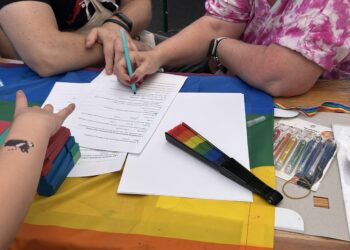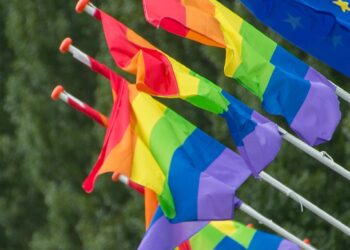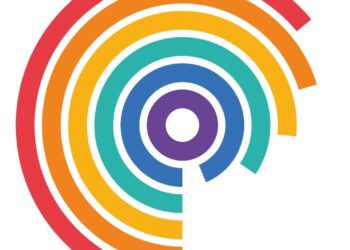22 March 2025
In the last 10 years we have been witnessing significant recession in the rights of Lesbian,
Gay, Bisexual, Trans, Queer and other gender and sexual minority (LGBTQ+) individuals in
many countries, including the United States of America and Hungary. This trend includes
legislative changes that cite the protection of children, but in reality aim to discriminate
against and silence sexual and gender minorities. In Hungary, these measures included
prohibiting the presentation of LGBTQ+ content and perspectives, and most recently,
restricting the right of assembly.
Restricting sexual education and the right of assembly based on the protection of children
lacks scientific base. This argumentation, broadcast by governmental communication, is
merely built on homophobic and transphobic prejudices, including confounding
homosexuality and pedophilia. Contrary to the statements by the government and certain
professionals, there is no scientific evidence that “presenting homosexuality” (i.e.,
information related LGBTQ+ or participation in Pride) can be harmful for youth in any age.
According to the scientific consensus, none of the sexual orientations or gender identities
are illnesses that must or could be prevented. Children’s sexual orientation or gender identity
is not influenced by them meeting to LGBTQ+ individuals. There is no scientific evidence
confirming that the sight of colorful and peaceful parades, even if they are crowded and
noisy, would negatively impact the psychological development of children.
On the other hand, there is ample evidence on how harmful it is for LGBTQ+ youth if they do
not have access to comprehensive sexual education and age-appropriate information,
support and healthcare related to sex and sexuality. Further information on these can be
found in the references appended to our present statement.
Comprehensive sexual education supports the sexual health and self-efficacy of LGBTQ+
youth, and it reduces the likelihood of non-consensual sex. Therefore, restricting or
prohibiting such educational programs can largely increase sexual abuse (including
domestic violence) and the likelihood of risky sexual behaviors. Negative sexual health
outcomes are strongly correlated with decreased mental health, including lowered self-
esteem, elevated depression, substance use and criminal behaviors. There are only few
studies on the impact of legislative measures that stigmatize LGBTQ+ individuals. Still, the
existing research shows that if sexual education does not contain information on LGBTQ+
identities, there is an increased risk of bullying, violence and the occurrence of suicidal
ideation and attempts—not only among LGBTQ+ youth but their non-minority peers, too.
After erasing comprehensive sexual education, the next discriminative step of the Hungarian
government was banning the Pride, an event that promotes the rights and visibility of the
LGBTQ+ community. Silencing Pride questions the right of sexual and gender minority
individuals to exist, thus further increasing their mental vulnerability. The affected community
includes many young people under 18. The government restrict their rights, citing
demagogue and unscientific claims. Those most harmed by the stigmatizing and
discriminative legislation are LGBTQ+ youth, who are disenfranchised from their rights to
health and dignity, in the name of “child protection.” We are not only reading it in the scientific
literature; in our own professional practices we also directly witness that these legislative
measures contribute to the mental crisis affecting the LGBTQ+ community, particularly
young people. This is manifested in the increasing occurrence of their suicidal ideation and
attempts.
This statement is a resolution solely by the Section of LGBTQ+ Psychology, it is not an official communication by the Hungarian Psychological Association.
Recommended references:
American Psychological Association, Divisions 16 and 44 (2015). School-based risk and
protective factors for gender diverse and sexual minority children and youth: improving
school climate. https://www.apa.org/pi/lgbt/programs/safe-supportive/lgbt/risk-factors.pdf
Baams, L., Dubas, J. S., & Van Aken, M. A. (2017). Comprehensive sexuality education as a
longitudinal predictor of LGBTQ name-calling and perceived willingness to intervene in
school. Journal of Youth and Adolescence, 46, 931-942.
https://doi.org/10.1007/s10964-017-0638-z
Hatzenbuehler, M. L., Birkett, M., Van Wagenen, A., & Meyer, I. H. (2014). Protective school
climates and reduced risk for suicide ideation in sexual minority youths. American Journal of
Public Health, 104(2), 279–286. https://doi.org/10.2105/AJPH.2013.301508
Hensel, D. J., Nance, J., & Fortenberry, J. D. (2016). The association between sexual health
and physical, mental, and social health in adolescent women. The Journal of Adolescent
Health: Official Publication of the Society for Adolescent Medicine, 59(4),
416–421. https://doi.org/10.1016/j.jadohealth.2016.06.003
Ioverno, S., Nappa, M. R., Russell, S. T., & Baiocco, R. (2022). Student intervention against
homophobic name-calling: the role of peers, teachers, and inclusive curricula. Journal of
Interpersonal Violence, 37(21-22), NP19549-
NP19575. https://doi.org/10.1177/08862605211042817
Leung, E., Kassel-Gomez, G., Sullivan, S., Murahara, F., & Flanagan, T. (2022). Social
support in schools and related outcomes for LGBTQ youth: A scoping review. Discover
Education, 1(1), 18. https://doi.org/10.1007/s44217-022-00016-9
Li, G., Wu, A. D., Marshall, S. K., Watson, R. J., Adjei, J. K., Park, M., & Saewyc, E. M.
(2019). Investigating site-level longitudinal effects of population health interventions: Gay-
Straight Alliances and school safety. SSM-Population Health, 7,
100350. https://doi.org/10.1016/j.ssmph.2019.100350
Proulx, C. N., Coulter, R. W., Egan, J. E., Matthews, D. D., & Mair, C. (2019). Associations of
lesbian, gay, bisexual, transgender, and questioning–inclusive sex education with mental
health outcomes and school-based victimization in US high school students. Journal of
Adolescent Health, 64(5), 608-614.
Tabaac, A. R., Johns, M. M., Zubizarreta, D., Haneuse, S., Tan, A. S., Austin, S. B., Potter,
J., Lindberg, L & Charlton, B. M. (2023). Associations between sexual orientation, sex
education curriculum, and exposure to affirming/disaffirming LGB content in two US-based
cohorts of adolescents. Sex Education, 23(5), 506-523.
https://doi.org/10.1080/14681811.2022.2072286






